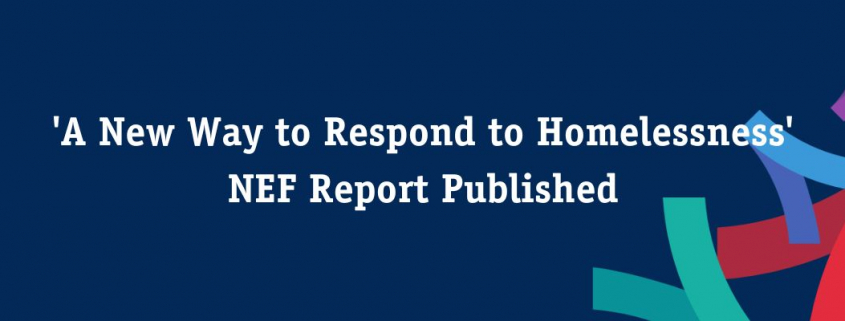A report conducted by NEF Consulting, part of the New Economics Foundation, studying a new way to respond to those facing homelessness evidences a sector wide shift is needed.
NEF Consulting conducted a two-year evaluation of the Person-Led, Transitional and Strength Based (PTS) Response delivered by two national organisations working in the homelessness sector, Mayday Trust in Northampton and its partner Changing Lives in Newcastle. The PTS Response sees executive-style coaching, usually reserved for highly-paid business managers, working for people who had been trapped in homelessness for years.
Alex Fox, Chief Executive of Mayday Trust, who pioneered the response, said, “These findings confirm what we have been saying for many years. Working in this way can revolutionise the support we give to people going through tough times.”
The PTS Response is a way of working with people that listens to what they want and need and offers coaching support to help people reach their goals. There is no compulsory engagement, the coaches work at the pace of the person, and a lot of time is invested in building relationships of trust and respect.
The ‘Evaluating the Person-Led, Transitional and Strength Based (PTS) Response Report’ was released today and evidences the pioneering work, which challenges traditional deficit based support models, shows a great potential to “revolutionise” support and change the homelessness system.
The Person-Led, Transitional and Strength Based (PTS) Response was developed by Mayday Trust following a huge transformation of services. Once a conventional service provider within the social care sector, Mayday conducted a series of deep listening exercises known as the Wisdoms Series, inviting those within and working closely with their services to reflect the reality of their experiences. The results uncovered the systematic institutionalisation of people trying to access services, anchoring people in their area of weakness, leaving them unable to create sustained, positive change for themselves. Mayday Trust took radical action, transforming their services to become person-led, releasing housing stock and focussing on relationships first.
The PTS Response provides PTS Coaches to walk alongside people going through the toughest of times, creating an environment where people have choice and control over their lives and can move forward to the future they want.
Working with Coventry University Mayday Trust took their theory and developed an academic framework for others to learn from creating the PTS Qualification.
Through establishing a ‘New Systems Alliance’ the PTS Response is being adapted as a transformational framework by organisations across the UK who work with those facing tough times, such as homelessness.
The NEF Consulting report shows that the PTS is valued by those accessing the service, however learning is still ongoing as many reported systemic and organisational barriers to progress such as dealing with the local authority in accessing funding or a home; lack of safe housing, which led people to experience instability; and the pandemic and the lockdown restrictions, which also played a part in putting people’s aspirations “on hold”. The report shows too that the wider systemic culture around the housing sector, which contrasts markedly with the PTS asset-based approach, may also be undermining the PTS Coaches’ outcomes for the individuals.
Despite much of the research being conducted during COVID 19 restrictions respondents working with a PTS coach reported an increase in self-esteem, sense of purpose, and optimism. People also reported better mental health including feeling happier, and a reduction in anxiety. On average, by the time the coaching relationship ends, there is a demonstrable increase in wellbeing scores and people are starting to be closer to a ‘National Average’.
Respondents reported that the coaching relationship established trust through listening and the time invested in getting to know them was highlighted as the most important aspect of the support in terms of providing timely support and achieving outcomes. Where a person-led approach was also taken when deciding when and how to end a coaching relationship, evidence showed this increased the chance of positive outcomes being more sustainable.
Alex Fox, CEO of Mayday Trust reflected on the report saying “The PTS Response is demonstrating a highly effective strengths-based approach to coaching people who are going through some of life’s toughest challenges.
The report shows that working in this way allows people more dignity, control and positivity in the process.
The evidence, that the PTS Coaches struggle sometimes to work alongside people in more traditional services, is one of the main reasons we created the New System Alliance, to take the principles of what we’ve learned in Mayday, and champion the change we want to see elsewhere across the UK.”
Operations Director at Changing Lives Neil Baird said “Changing Lives embrace strength-based practice and the PTS approach has been fundamental in our adoption of these principles. This report provides an important insight into the barriers still experienced by people who are facing challenges such as homelessness or addiction.”
NEF Consulting launched the report on their website today referring to the PTS Response as ‘A New respond to homelessness; evidencing the need for a sector wide shift
The NEF Consulting report can be accessed here.





